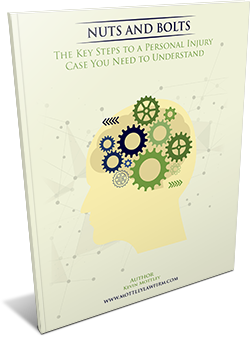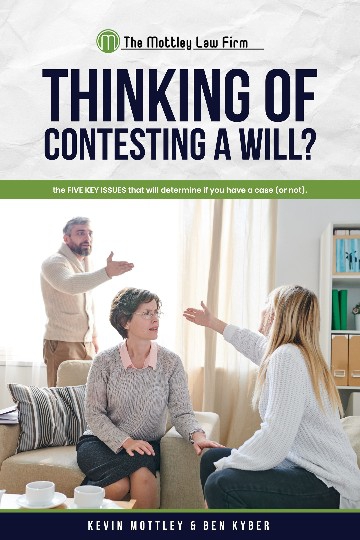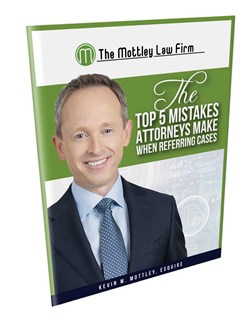When Trial Judges Restrict Voir Dire: Why You Must Object in Virginia Courts
A Hard Lesson Learned During Jury Selection
In my letter from two weeks ago, I wrote about Virginia's standard for striking a juror for cause and how I typically go about trying to establish cause to strike a juror.
When it comes to trials, you have to be prepared for everything that might arise. Anyone who has tried a case of any complexity knows it is impossible to prepare for every conceivable thing that may happen in a trial. Something always seems to happen that was unexpected. But we must try.
In advance of a trial, I asked a trial judge how he handled voir dire and if he had any restrictions on voir dire. The response from the judge was that he pretty much let the lawyers do what they want during voir dire. I got the impression he "lets the lawyers try their case."
With that impression, I probably let my guard down a little bit.
That was a mistake.
When the Judge Changed the Rules Mid-Trial
On the morning of trial, I was getting some raised hands from the panel of prospective jurors during voir dire, indicating that a handful of the prospective jurors had feelings against personal injury cases and the people who file them. So, I started the process of following up with them to see why they raised their hands and how strongly they held these beliefs.
I started with a gentleman in the front row who raised his hand indicating bias against personal injury lawsuits.
But then the unexpected happened. The trial judge interrupted me and said that I should not "pry into their personal feelings" because that "invites [the] potential for problems in the process here." I was surprised because this was at odds with what I expected from the judge.
I moved on, but when I then tried to ask questions about another juror's feelings on this topic, the judge interjected again, "[w]ait just a moment. We are not doing individual voir dire."
Still later, I had a number of people raising their hands indicating they would never award damages in the amount we planned to ask them to award in the case. Although the judge permitted that question and the raising of hands, he would not permit any inquiry by me into that subject matter aside from them raising their hands.
He warned, "now…that we know who they are…we are not going to delve into that."
In other words, I was instructed to stop asking individuals on the venire "individual" questions about their "feelings" on two big areas of potential bias in a personal injury case.
With this as the ground rules, I realized that striking for cause jurors who held bias against my client and his case was going to be an impossible task.
Why I Didn't Object (And Why That Was Wrong)
I went through the rest of my voir dire as best I could without asking "individual" questions about "feelings." But it was obvious that my plan had been totally submarined by the judge.
I did not object to the judge's restrictions. I just dealt with them and moved on.
Why not?
Well, for one thing, I was taken back and surprised by the judge's position against asking such questions.
The other consideration was my fear of losing credibility with the prospective jurors. If I were to raise an objection right up front and get shot down by the judge in front of all these people, it would not look good with these strangers I was trying to get to know and with whom I was trying to establish trust.
And if I were to raise an objection that needed a side bar discussion with the judge, the entire courtroom would need to be emptied to accomplish that, thereby irritating the judge, slowing down the process, and inconveniencing all these fine people.
But I later decided that the next time this sort of thing happened, I was going to object and challenge the judge on these sorts of obstructions.
Be Prepared to Object: Know Virginia Code § 8.01-358
You need to be mentally prepared before voir dire to object to the judge's restrictions on voir dire, and to fight off objections from your opponent.
For starters, read the statute, Virginia Code § 8.01-358, and have a copy of it printed out and inserted in your voir dire notebook. That statute provides that counsel for the parties "shall have the right to examine under oath any person who is called as a juror therein and shall have the right to ask such person or juror directly any relevant question to ascertain [whether they are biased]."
The trial judge's restrictions in my case against asking "individual" questions of jurors about their "feelings" obviously violated that statute.
Arm Yourself With Case Law
It is also helpful to brush up on case law. You will learn that asking prospective jurors about their "preconceived notions, opinions, or misconceptions" is entirely appropriate. See Lovos-Rivas v. Commonwealth, 58 Va. App. 55, 61 (2011).
The point is that a juror must be able to assure the court that their decision in the case will be "based solely on the law and evidence presented at trial." Id. (emphasis added).
They must be able to "lay aside" their preconceived notions, opinions, and misconceptions.
Fight for Your Client's Right to an Unbiased Jury
To prepare for voir dire, you must arm yourself with the law and be mentally prepared to fight for your client's right to an unbiased jury, even if that means locking horns with the trial judge right at the beginning of trial. And, of course, if you face such obstacles and you fail to persuade the court to see things your way, you must object to preserve error.
I should note that the above comments apply to trying cases in Virginia's circuit courts. They do not apply in federal district courts. The law governing what a federal district court judge may do during jury selection is much different, and gives federal judges considerably more discretion. Stay tuned for another email from me addressing voir dire and jury selection in Virginia's federal district courts.





